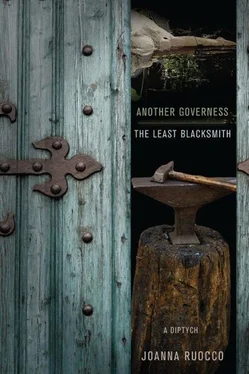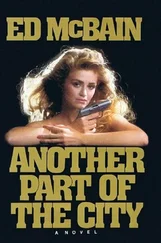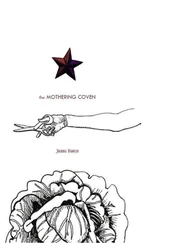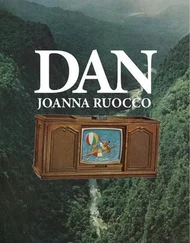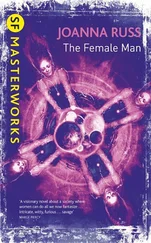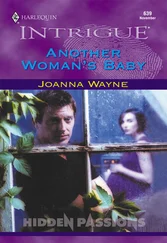There is dust in the air. There are nits in the air. There is dirt on the windows. The light is dim. It is dirty, dim light. The children think my hair is pale, long and pale, darkened by the dirty, dim light. They think my face is just a sliver in the light. I crowd the children from the table. I eat cake after cake. The cakes are not good. They make a hard lump in my belly. I can feel the lump through the dress. I am very slim. I am very straight and very slim, but now there is a lump, an ugly, bad lump. I squeeze the lump. I twist the lump. Lift up your shirt, I say to Spot. He lifts up his shirt. I press his belly. I feel a hard lump. Spot grunts. It is the cakes. The cakes are not good. The cook scraped the paper from the walls to mix with the wheat. There is dye on the paper. There is glue on the paper. There is plaster on the paper and white hairs from the lath. The cook has damaged the walls. Without the paper, plaster cracks. It crumbles. The cook has made holes in the walls. The plaster spills on the floor. The cook tracks plaster through the house. She has tracked plaster through the nursery. I see white powder on the carpet. I see white powder on the cakes. I see hairs in the powder. I take the tray of cakes and walk to the window. No, says Tamworth. No. No. She crawls behind me too slowly. I reach the window. I strike the dim glass with the tray. The glass cracks. Light comes through the crack. I make a hole in the glass with the corner of the tray. Light comes through the hole. I push a cake through the hole, but the cake crumbles. Crumbs stick to the glass. I push the cake harder. Blood runs on the glass. I leave the one cake smashed in the window. I say, There is glass in the cakes. I laugh. Tamworth lies facedown on the carpet, arms reaching toward the window. I walk around Tamworth. I put the tray on the table. Spot leans forward. He shoves a cake in his mouth. His shirt is pushed up. He smiles with the cake in his mouth. He rests his hand on his belly. I move his hand. While he chews, I press the lump in his belly. It is the size of an apple. The apple moves up and down as he chews. Who gave you the apple? I say. My hand leaves a brown stain on the lump on Spot's belly. It is very like an apple. Here is your apple, I say to Tamworth. I hold Spot's arms. He does not move. Tamworth crawls toward us. She rises to her knees. She puts her mouth on Spot's lump. She opens her mouth on the lump. She roots in Spot's belly for the apple. Spot grunts, but he does not move. He has little red bumps on his arms. He has white hairs on his cheeks. His skin is wet. It smells bad. I hold him against the dress. His sweat softens the stains on my dress.
Spot is grown. He is a man. The Master must be an old man, a very old man. I did not realize the Master was such an old man. The Master walks with a stick. He beats the floor with the stick. He beats the walls with the stick. We hear his cries and the blows of the stick. We hear the Master on the stairs. We hear the Master in the hall. We hear the Master pass the door. Spot crawls toward the door. Tamworth crawls after. Master, says Spot, but the Master does not stop. He is going up to the tower, around and around the spiral steps to the tower. From the tower, the Master can see what happens in the orchard. He can see through the black boughs of the apple trees. He can see through the black boughs and into the black brush of the forest, the bushes and brambles, the mud and the rocks and the leaves. He can see the shapes crawling like lice in the forest, even through the milk on his eyes.
The brickmaker had a daughter. She lived by the beck, hard by the beck. She lived alone by the beck. The brickmaker worked in the brickfield and his daughter lived by the beck. The brickmaker made bricks with refuse and clay. He mixed one part refuse to five parts clay. The beck had a stone bed and between the stones, clay. When the brickmaker's daughter pried up the stones to scoop the clay, the water clouded. The water clouded gray blue and the clouds thinned in the currents of the beck, carried downstream in the beck, gray blue streaks in the beck stretching down to the village at the bottom of the gorge. The brickmaker's daughter scooped the clay into a bucket. She carried the bucket to the brickfield. To get to the brickfield, she passed through the village. The brickmaker's daughter followed the beck through the village and every now and then she clouded the water with a handful of clay. One day the billposter saw the brickmaker's daughter veer from the beck. She veered from the beck with her bucket. She crossed through the churchyard. She stopped by the bakery, by the open ditch by the coal heap by the bakery. She put down her bucket. The open ditch was narrow and the brickmaker's daughter stood with one foot on either side of the ditch. She stood astride the ditch with her skirt hanging down and she made water into the ditch. She picked up her bucket and she returned to the beck, to the black bank of the beck that flowed through the village to the brickfield. She followed the beck. From then on, the billposter watched for the brickmaker's daughter. The brickmaker's daughter came down the steep path toward the village with her bucket. She passed through the village. She braced the bucket on her hip, or she tilted the bucket forward so the base of the bucket rested on her thigh. Sometimes she veered. She veered from the beck to the bakery. She made her water, upright, astride the open ditch by the coal heap by the bakery. Finally, the billposter could not contain his curiosity. He came out from behind the tree where he had been pretending to post his bills. Let me carry your heavy bucket, said the billposter. He had a black beard and he smiled through the black beard at the brickmaker's daughter. He lifted her bucket from where she had set it on the coal heap and he carried her bucket to the beck. He followed the beck to the brickfield and the brickmaker's daughter followed behind. When they arrived at the ridge overlooking the brickfield, the billposter put down the bucket. He sat on a stone and he pulled the brickmaker's daughter across his knees. He tickled her ear. He folded up her skirt and inspected her buttocks. Her buttocks bore a mark, two white protuberances, like the paps of a ewe. The billposter struck a tack into the larger protuberance with his long-handled hammer. The skin broke but did not bleed. The brickmaker's daughter grunted. Struggling, she stretched out her hands. She pulled the rim of the bucket. She tipped the bucket and her hands sank into the clay in the bucket. The billposter lifted her from his knees and she stood before him, upright, with her gray blue hands hanging down at her sides. Clouds had thickened in the sky. The billposter felt as though he were being pressed into the stone and grew afraid. He rose and moved forward. He pushed the brickmaker's daughter so that she toppled backwards from the ridge. She landed below on the brickfield. Her impact forced the gray blue moisture up through the earth and the gray blue moisture lay like a stain on the earth around the brickmaker's daughter. The billposter picked up the bucket. He emptied the bucket onto the brickfield from the ridge so that the brickmaker could mix the clay with the refuse and so fill his wagon with bricks.
I dip the hem of my dress in the pitcher of milk. I clean the skin on my face. I pick between my teeth. I pick beneath my nails. I am pretty and clean. I squeeze gray milk from the hem of my dress. I straighten my dress. I am pretty and clean for the lesson. Spot notices that I am clean. He stands on his feet, his big feet. He totters. He walks toward me. He lifts his shirt. It hurts, says Spot. He puts my hand on the lump. He whimpers. He moves my hand back and forth on the lump. He comes closer. He is very tall, very thick and tall. On his feet, he looks grown. He bends his neck and rests his brow on the top of my head. He breathes on my face, my pretty, clean face. Spot is tall. He is grown, but I can tell that he is hardly a man. His breath is wet. His breath smells spoiled, sweet and spoiled. Around the hard lump, his belly is soft. The buttons on my dress sink into his belly. Black buttons disappear in his belly. Sometimes there are currants in cakes, black currants sunk in the cake. There is a lesson about black currant cake. Two girls ate a black currant cake. They spread cloth napkins on their dresses. They put their hats on the grasses. They lifted the wedges of cake with their hands. They were great big girls. They flattened the grasses. Their teeth turned black. They laughed. They picked each other's teeth. They licked each other's teeth so the teeth were white and clean. They spread cream on the cake. They put their blackened fingers in cream. There are lessons in the nursery. There is so much to learn. I work my fingers between Spot's belly and the buttons. My fingers get wet. They slide on Spot's skin. I bend my fingers so my nails dig in Spot's skin. Spot does not act like a man. He whines. The fluid from his lips drops on my face. Go to your desk, I say. I poke with my fingers. I jerk with my head so Spot's brow slips and his face comes down fast. He takes a big step so he does not fall. He lifts his head. His chin is wet and he does not shut his mouth. He does not smile. Go to your desk, I say. In the corner of the room, there are two desks. Each desk has its bottle of fluid. Each desk has its pile of books. I walk to the desks. Tamworth is crouching beneath a desk. She puts her hands on her knees and looks between her legs. She makes her mess beneath the desk. Her legs shake. She looks at me.
Читать дальше
